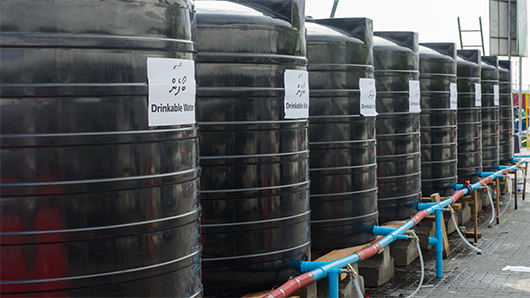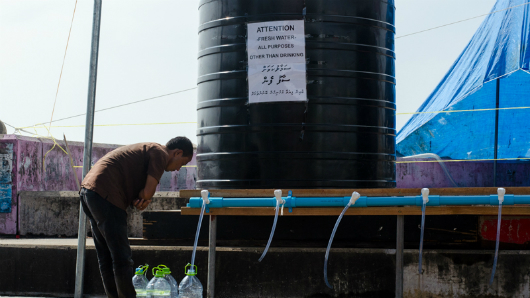Recently dismissed defence minister Colonel (retired) Mohamed Nazim was arrested last night at around 1:15am.
Nazim’s lawyer has said police told him his client was being charged with offences related to activities against the state, while his arrest form described the charges as terrorism and possession of illegal items.
The charges carry a potential sentence of 7 – 10 years, explained Maumoon Hameed, adding that his client was taken last night to Dhoonidhoo detention center.
“We would be able to prove at the remand hearing that the Nazim should not have been arrested and that he is not guilty of any accusations,” he told Minivan News.
Media had reported that the police’s investigation into dangerous weapons charges had been forwarded to the Prosecutor General’s Office yesterday evening, though Hameed has not been officially informed of this.
Nazim himself tweeted news of his arrest to his followers shortly after 1am, also announcing that he had left the ruling Progressive Party of Maldives.
Wish to inform all well wishers ive been taken to police custody tonight. Allah almighty will give me justice..Insha allah.
— Mohamed Nazim (@nazim7878) February 9, 2015
I would like to inform all my well wishers.i hv left #ppm today but will be committed to work with u for a better & secure #Maldives — Mohamed Nazim (@nazim7878) February 9, 2015
Police were unable to reveal further details of the arrest, while Minivan News was unable to obtain a response from the Prosecutor General’s Office at the time of press.
Special Operations officers raided Nazim’s home in the early hours of January 18, with police later saying they had found dangerous weapons – including a pistol and an explosive device during the search.
After initially expressing support for the minister, Nazim was dismissed from his position two days later, being replaced by Major General (retired) Moosa Ali Jaleel on January 20.
Police have maintained they were unaware that the home belonged to the defence minister prior to the raid, later telling media that the decision was made not to make arrests due to the profile of the suspect.
After the passports of both Nazim and his wife were confiscated, the former minister was summoned for questioning at police headquarters earlier this week.
Related to this story
Police raid Defence Minister Nazim’s home in early hours
Nazim dismissed as defence minister, replaced by Moosa Ali Jaleel
Pistol and explosive device found at Nazim’s home, says Police Commissioner



